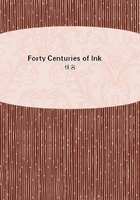
第80章
They are not questions of negligence or of liability to parties upon commercial paper, but are those of authority solely. The question of negligence cannot arise unless the depositor has in drawing his cheek left blanks unfilled, or by some affirmative act of negligence has facilitated the commission of a fraud by those into whose hands the check may come.' (Crawford v. West Side Bank, 100 N. Y. 50.) Therefore, when the fraudulent alteration of the checks was proved, the liability of the bank for their amount was made out and it was incumbent upon the defendant to establish affirmatively negligence on the plaintiff's part to relieve it from the consequences of its fault or misfortune in paying forged orders. Now, while the drawer of a check may be liable where he draws the instrument ill such ill incomplete state as to facilitate or invite fraudulent alterations, it is not the law that he is bound so to prepare the cheek that nobody else call successfully tamper with it. (Societe Generale v. Metropolitan Bank, 27 L. T. [N. S.] 849; Belknap v. National Bank of North America, 100 Mass. 380) In the present case the fraudulent alteration of the checks was not merely in the perforation of the additional figure, but in the obliteration of the written name of the payee and the substitution therefor of the word 'Cash.' Against this latter change of the instrument the plaintiffs could not have been expected to guard, and without that alteration it would have no way profited the criminal to raise the amount. . . ."A Pinkerton case of international repute, best known as the "Becker" case, included the successful "raising" of a check by chemical means from $12 to $22,000. The criminal author of this stupendous fraud was Charles Becker, "king of forgers,"who as an all round imitator of any writing and manipulator of monetary instruments then stood at the head of his "profession." Arrested and taken to San Francisco he was brought to trial. Two of his "pals" turned state's evidence, and Becker was sentenced to a life term. Through an error on the part of the trial judge he secured a new trial on an appeal to the Supreme Court. The jury disagreed on a second trial, but on the third trial he was convicted.
Becker pleaded for mercy, and as he was an old man and showed signs of physical break-down, the court was lenient with him. Seven years was his sentence.
After his incarceration in San Quetin prison, he described in one sentence how he had risen to the head of the craft of forgers. "A world of patience, a heap of time, and good inks,--that is the secret of my success in the profession."On completing his sentence, his reply to the question, "What was the underlying motive which induced you to forge?" was one word, "Vanity!"The detailed facts which follow are from the "American Banker:""On December 2, 1895, a smooth-speaking man, under the name of A. H. Dean, hired an office in the Chronicle building at San Francisco, under the guise of a merchant broker, paid a month's rent in advance, and on December 4 he went to the Bank of Nevada and opened an account with $2,500cash, saying that his account would run from $2,000 to $30,000, and that he would want no accommodation. He manipulated the account so as to invite confidence, and on December 17 he deposited a check or draft of the Bank of Woodland, Cal., upon its correspondent, the Crocker-Woolworth Bank of San Francisco. The amount was paid to the credit of Dean, the check was sent through the clearing-house, and was paid by the Crocker-Woolworth Bank. The next day, the check having been cleared, Dean called and drew out $20,000, taking the cash in four bags of gold, the teller not having paper money convenient. He had a vehicle at the door, with his office boy inside as driver, and away he went. At the end of the month, when the Crocker-Woolworth Bank made returns to the Woodland Bank, it included the draft for $22,000.
Here the fraud was discovered, and here the lesson to bankers of advising drafts received a new illustration. The Bank of Woodland had drawn no such draft, and the only one it had drawn which was not accounted for was one for twelve dollars, issued in favor of A. H. Holmes to an innocent-looking man, who, on December 9, called to ask how he could send twelve dollars to a distant friend, and whether it was better to send a money order or an express order. When he was told he could send it by bank draft, he seemed to have learned something new; supposed that he could not get a bank draft, and he took it, paying the fee.